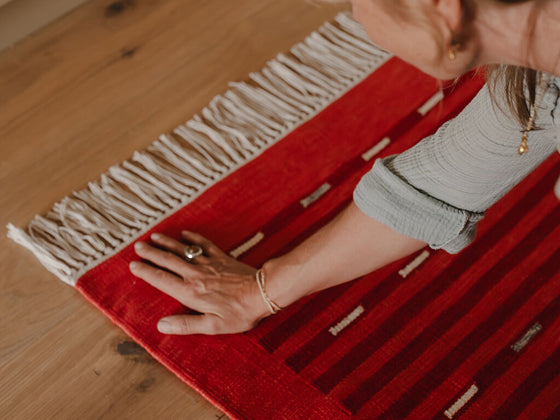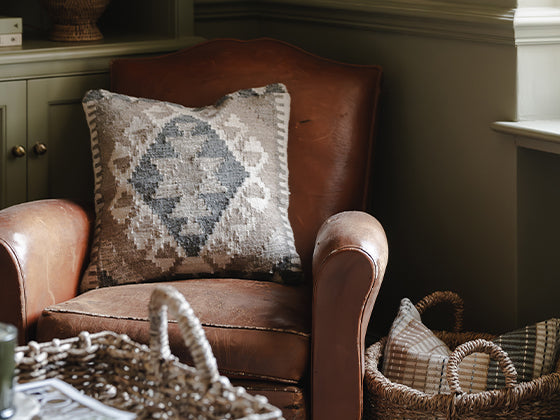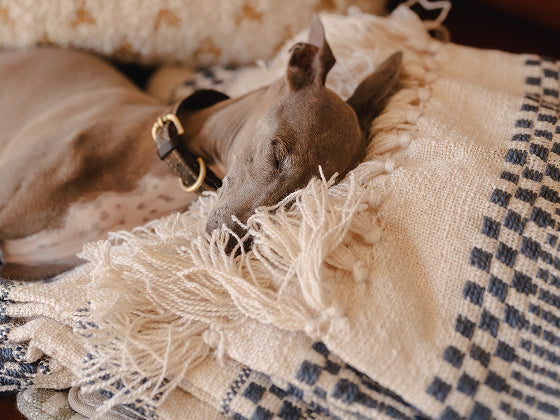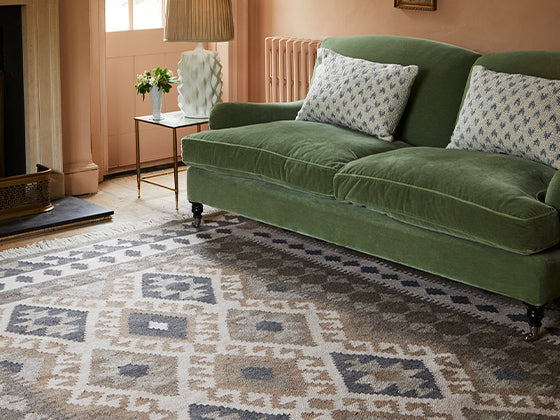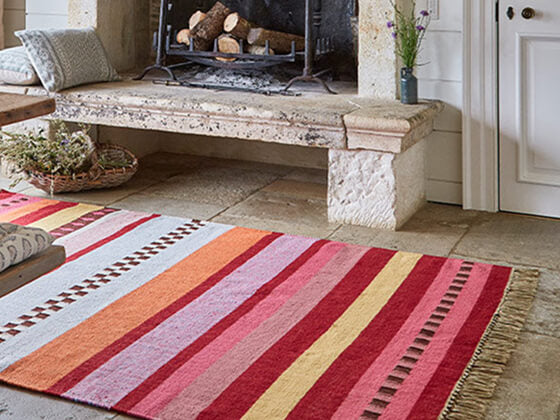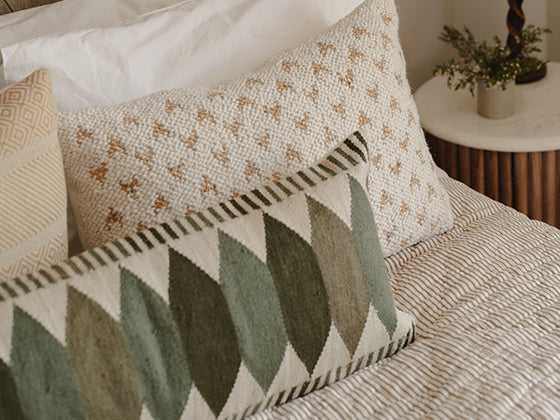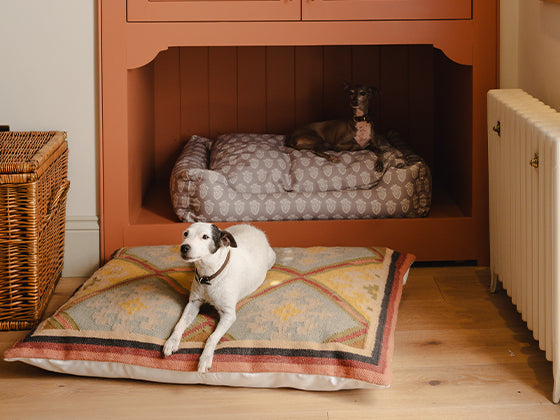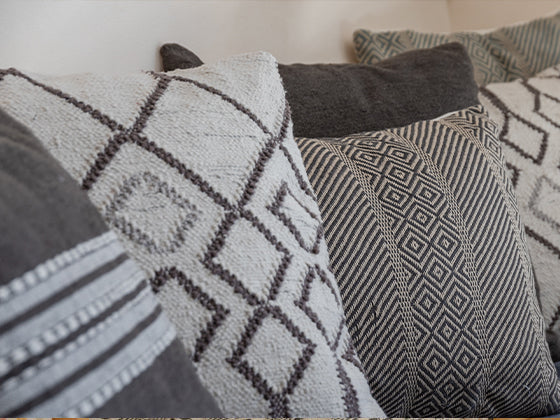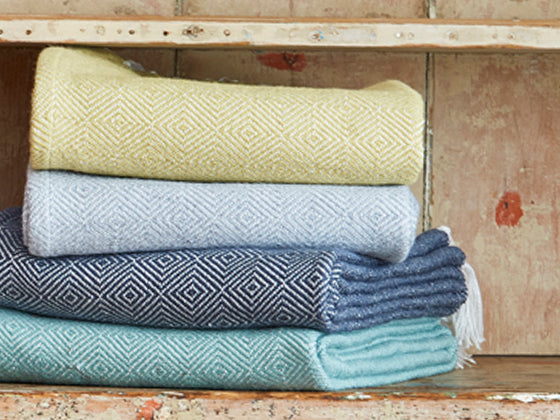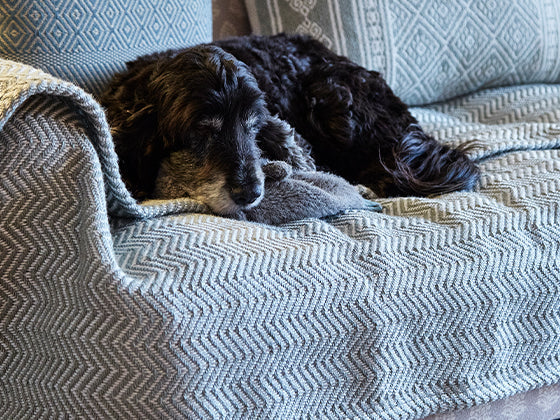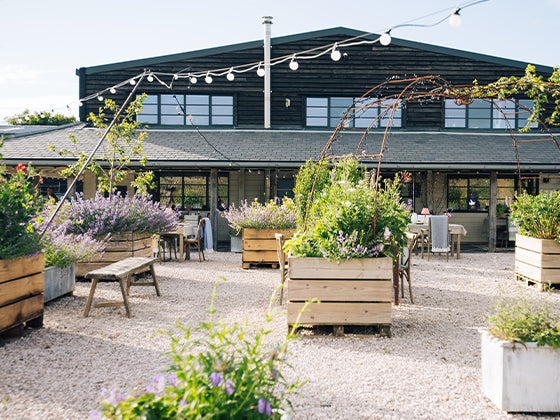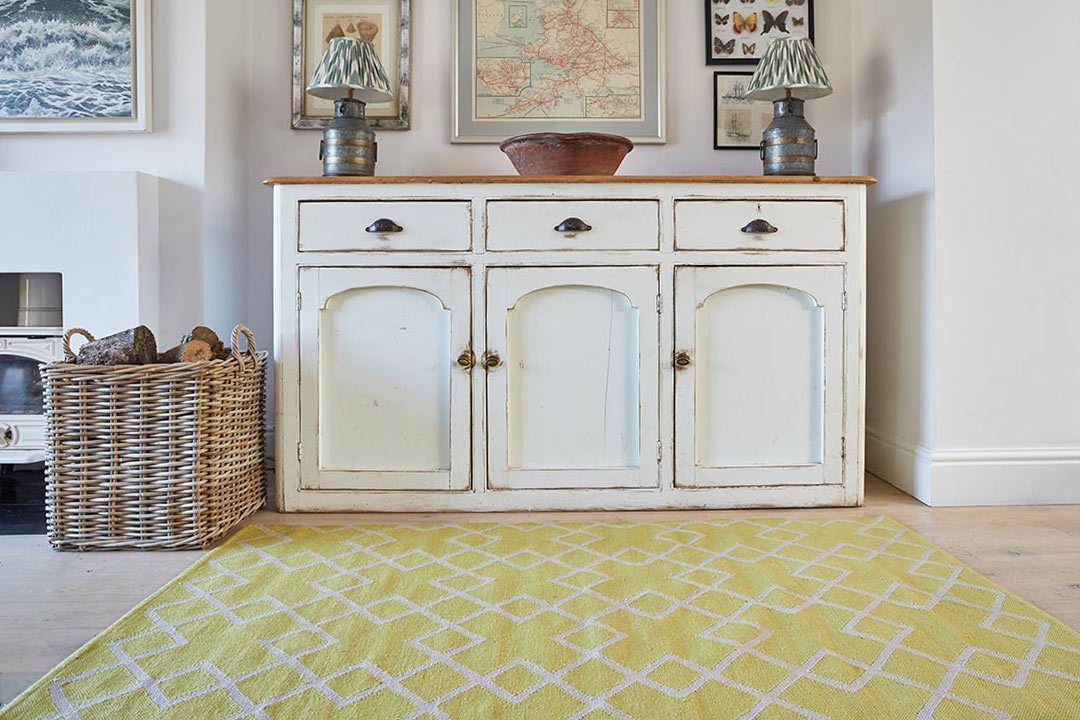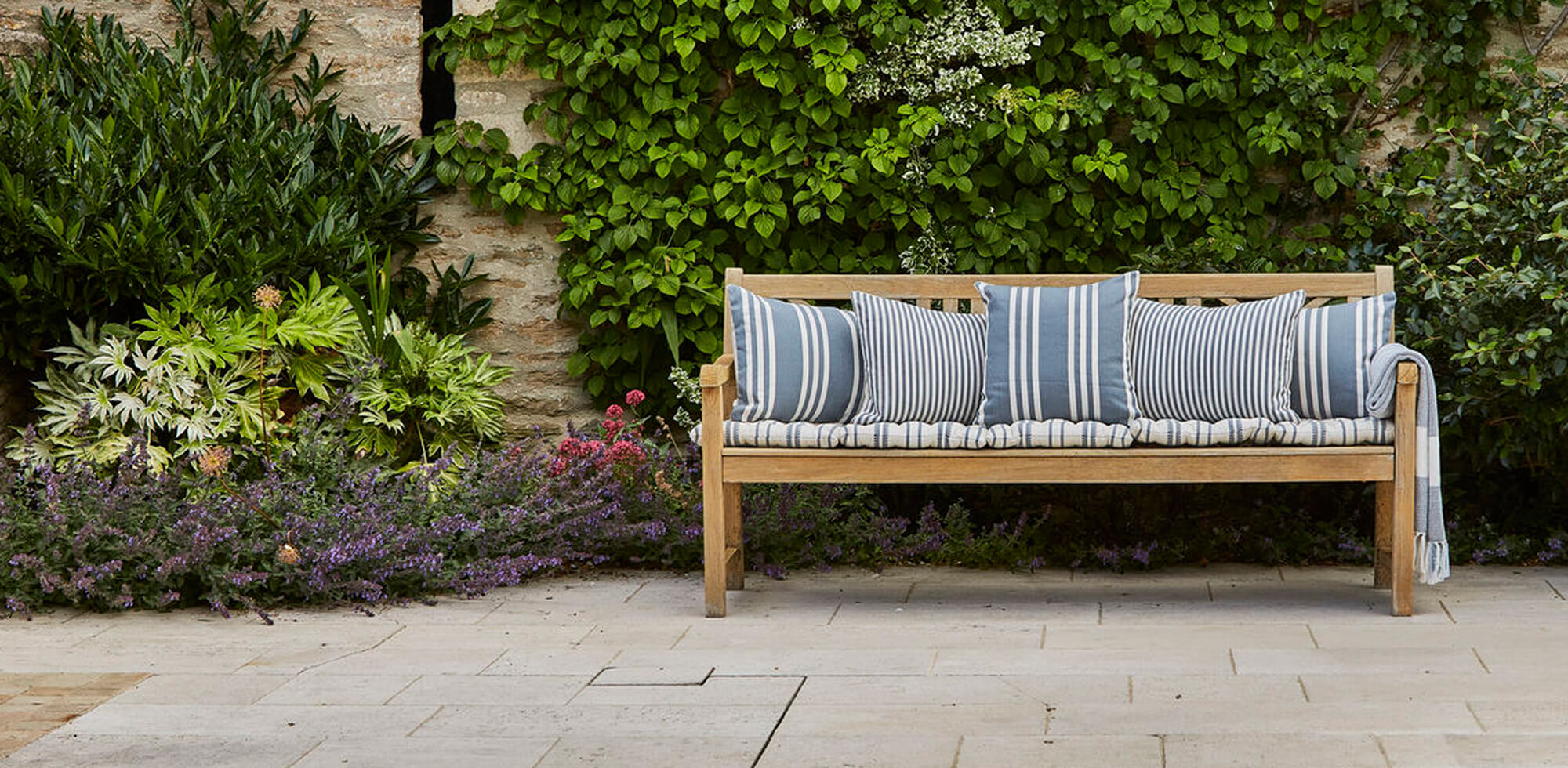As we become increasingly aware of the impact humans are having on the planet, it’s natural to feel a little overwhelmed. We think it’s best to take a step back, view the world as a giant jigsaw puzzle and focus on improving your little piece as best as you can. With a bit of faith that there are millions of people out there doing the same, together we can have a big impact.
From cutting down on your reliance on single-use plastic to supporting local food producers, there are lots of positive things you can do every day to make a difference. Here are some of our top tips for sustainable living:
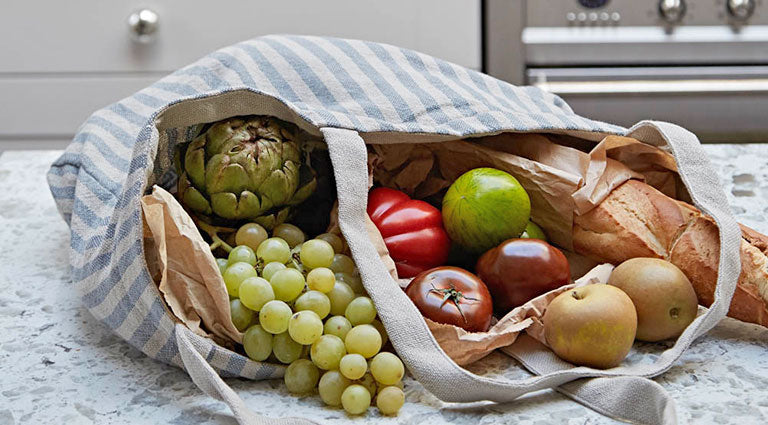
1. Shop sustainably
It is important now more than ever to be as conscious as you can when buying new products. At Weaver Green, all of our fabrics are made from 100% recycled plastic bottles and have been manufactured in Fairtrade weaving houses. In the last three years, we have given new life to an amazing 72 million plastic bottles, turning them into beautiful rugs, bags, blankets and more by incorporating gorgeous designs with recycled materials. Head over to our online store to see what’s new and to find out more about the process.
When buying things for your home, try to buy products that have a limited impact on the planet, there are plenty of great swaps you can do to make your home more sustainable. For example, why not try swapping clingfilm for Bee’s Wrap? Made from cotton and beeswax it is washable, reusable and compostable. Alternatively, look out for PLA wraps and films which are made out of a vegetable-based cornstarch material that behaves like plastic but are also completely compostable.

2. Reuse and recycle
It’s hard to completely avoid plastic pollution, however, there are lots of ways that you can reduce the amount of rubbish that ends up in landfills, starting with recycling. When you’re grocery shopping, choose loose fruit and veg and pass on those flimsy plastic bags. When the only option is packaged produce, look out for the on-pack disposal label which will help you seek out the products that have recyclable packaging. Additionally, try to avoid anything in black plastic as it is much harder to recycle. This is because black plastic gets its colour from being dyed with carbon black pigments – and it’s those pigments that stop the plastic from being recycled.
If you order directly through our website, you will receive your beautiful Weaver Green textiles in a compostable, recyclable paper bag. We care about having a positive impact on the planet and we hope our top tips will help you have one too!

3. Support your local producers
If you’re not already doing so, try shopping as locally as you can. By doing so, you not only reduce the carbon footprint and food miles of your meals, but you’re also supporting the smaller producers in your community and the local economy.
The local farmers' market is the perfect place to get fresh seasonal produce, but we understand this isn’t possible for everyone. If that’s you then when you’re next at your local supermarket or store, check the labels and try to make sure the ingredients in your food have been sustainably sourced. For example, if you’re buying British produce look out for the Red Tractor logo, all of their food is traceable and farmed with care.

4. Give up 'on the go' plastic
With the way that most snacks and drinks are now packaged, we know how difficult it is to limit plastic waste when you’re on the move. With most products including fresh produce now coming wrapped in plastic, it’s difficult to avoid unnecessary waste. However, there are ways that you can reduce your own plastic consumption whilst on the go. Try planning ahead and packing your snacks in a reusable container or why not buy a reusable coffee cup or water bottle?
Around 500 billion plastic bottles are sold every year, many of which are not recycled. At Weaver Green, we try to find a home for some of this plastic by making sure all of our rugs and textiles are made from 100% recycled plastic bottles. These bottles are used all over the world and favoured by massive brands like Coca-Cola, who produced a jaw-dropping 3 million tonnes of plastic pollution in a single year (source - Ellen Macarthur Foundation).
If you’re looking to reduce your plastic consumption check out this great bamboo reusable water bottle from Global WAKEcup who donate 10 percent of all profits to The Marine Conservation Society and Plastic Oceans UK, a great charity making big moves in the fight against plastic pollution.

5. Washing clothes and bedding
As highlighted in How To Give Up Plastic by Will McCallum, it comes as a surprise to most people that the clothes they wear are a source of plastic in our oceans. Tiny strands of nylon and polyester are shed from synthetic clothes every time we wash and wear them. Due to the rise of fast fashion, more and more clothes are made from these cheap, easy to source materials, in fact, man-made fibres now make up an astonishing 60% of the clothing we wear.
How to limit microfibre shedding
Research suggests that you can reduce the number of microfibres you emit by washing your clothes and fabrics at lower temperatures, making sure you use liquid laundry detergent and reducing the spin speed. To minimise potential microfibre shedding from our products, we've worked hard on ensuring that all of our textiles are made from yarn that reaches the highest possible tensile stability and strength. The key to our yarn is that it's constructed from long fibres, which are less prone to shedding.
We avoid using any toxic dyes and use a closed water system in all of our textile production. This means all of our products are washed and dyed with the same filtered water rather than using new water supplies.
For other ways to reduce the impact of your washing on the environment, we’ve put together this page on tackling microfibres.

